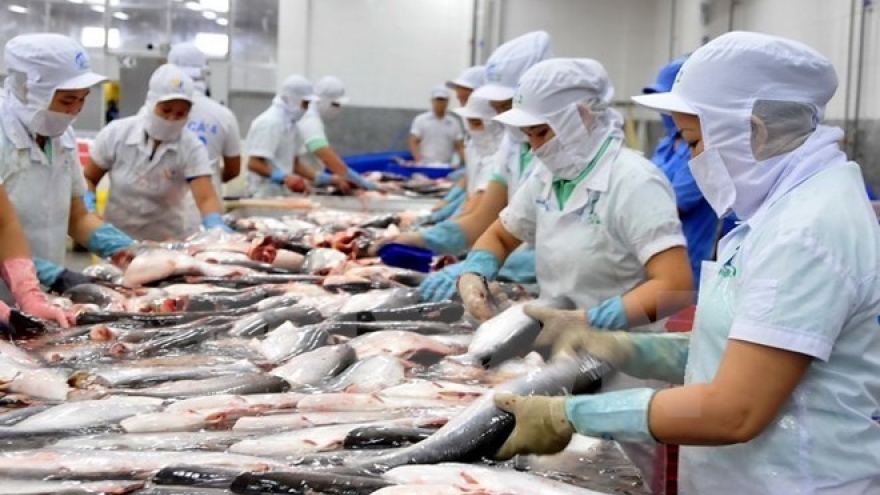Mekong Delta uses high-tech methods to raise tra fish
Tra fish breeds producers in the Mekong Delta have been urged to closely work with research institutes, universities and scientists to apply advanced farming techniques to produce high quality breeds.
 |
Tran Dinh Luan, deputy head of the Directorate of Fisheries, said that such breeds were needed to meet breeding requirements.
Luan said that tracing the origin of bred fish was also important as tra fish, a freshwater fish bred in the delta, is one of the country’s top seafood exports, following shrimp.
The country exported US$1.8 billion of tra fish in the first 10 months of the year, an increase of 24% year-on-year, with more than US$2 billion expected by the end of the year, according to the Ministry of Agriculture and Rural Development.
China, the US and the EU are the country’s three largest tra fish importers.
Tra fish breeders in the delta, the country’s largest tra fish producer, have farmed 4,472ha of tra fish as of the end of September, up 10% against the same period last year.
In the delta, tra fish breeders have applied advanced farming techniques to improve yield and quality.
Many tra fish breeders in the delta have applied VietGAP or GlobalGAP standards.
To ensure traceability, Delta provinces and Can Tho City that breed tra fish have been granted identification numbers for tra fish ponds that meet required conditions.
Dong Thap province has granted identification numbers for 349 tra fish breeders who had raised a total of 1,500ha as of July.
Many provinces in the delta have been breeding more tra fish since the Ministry of Agriculture and Rural Development released an instruction to increase production of tra fish in the remaining months of the year.
Dong Van Lam, chairman of the Tra Vinh province People’s Committee, said the province plans to develop tra fish farming areas to 470ha in 2020 and 580ha in 2025.
It will also spend about VND4.6 trillion (US$194 million) to build infrastructure for breeding, processing and sale of tra fish.
The province, in cooperation with research institutes and universities, is using high-tech methods to produce tra fish seeds and raise tra fish.
The province has 52ha devoted to raising tra fish, down by 50% against 2016.
The export turnover of tra fish is forecast to hit US$2.1 billion in 2018, up 22% from 2017, according to the Ministry of Agriculture and Rural Development.

